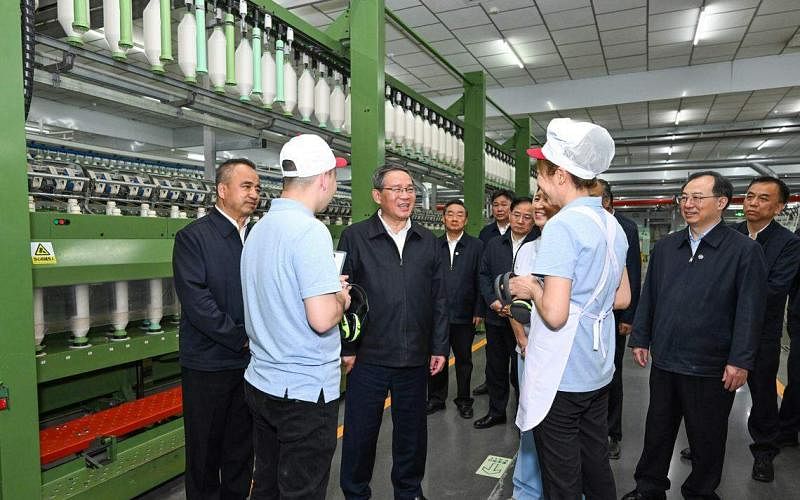The United States has recently increased pressure on China regarding the issue of forced labor in Xinjiang, leading to Chinese Prime Minister Li Qiang’s visit to the region this week. During his three-day visit, Li Qiang emphasized the need for Xinjiang to enhance its internal and external openness, strengthen international exchanges, and act as a bridgehead for western development.
In a notable move, Li Qiang inspected the subsidiary of Esquel Group, a prominent textile company that has been sanctioned by the United States for four years. Scholars interviewed believe that this inspection was meant to affirm the legality of these companies operating in Xinjiang and demonstrate the region’s commitment to remaining open to the outside world despite U.S. challenges on human rights issues.
Accompanied by Ma Xingrui, Secretary of the Party Committee of the Xinjiang Autonomous Region, Li Qiang visited various areas in Xinjiang, including Urumqi and Changji Hui Autonomous Prefecture. He inspected several companies related to agriculture, textiles, technology, energy, and chemicals, with a particular focus on Changji Esquel Textile, a subsidiary of Esquel Group that has faced U.S. sanctions.
Changji Esquel, established in Xinjiang, was included in the U.S. Department of Commerce’s entity list in mid-2020, resulting in a loss of European and American customers. During the visit, Yang Minde, chairman of Esquel Group, explained the company’s operations to Li Qiang, who expressed support for more R&D investment and technological advancement.
These developments come in the backdrop of escalating tensions between the U.S. and China over human rights violations in Xinjiang. U.S. Secretary of State Blinken recently labeled China’s treatment of Uyghurs as “genocide,” while the Chinese Embassy in the U.S. dismissed forced labor accusations as fabricated lies.
Despite U.S. sanctions, a recent survey revealed that 19% of cotton products sold in the U.S. still contain traces of Xinjiang cotton, indicating the limited impact of the ban. This highlights the importance of Xinjiang as a strategic hub for China’s economic, trade, and geopolitical interests.
Economic professor Yao Shujie commented that Li Qiang’s visit underscores the government’s commitment to Xinjiang’s development and its role in the Belt and Road Initiative. As China looks to deepen cooperation with countries along the Silk Road Economic Belt and enhance trade links through initiatives like China-Europe freight trains, Xinjiang’s significance is expected to grow further.
With its vast territory and potential for agricultural development, Xinjiang represents a key component of China’s national strategic security, particularly in ensuring food and energy supply amid global uncertainties. As Li Qiang continues to prioritize the region’s development, Xinjiang is set to play an increasingly crucial role in China’s economic and geopolitical aspirations.
